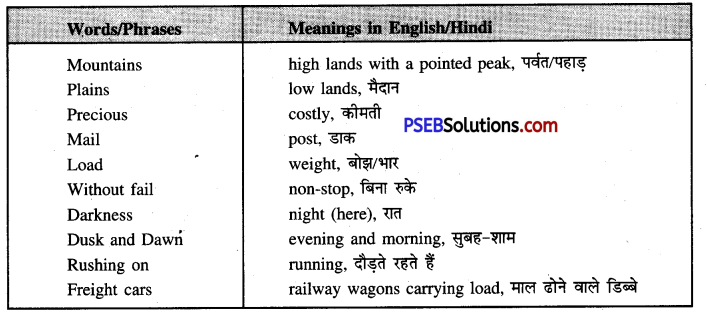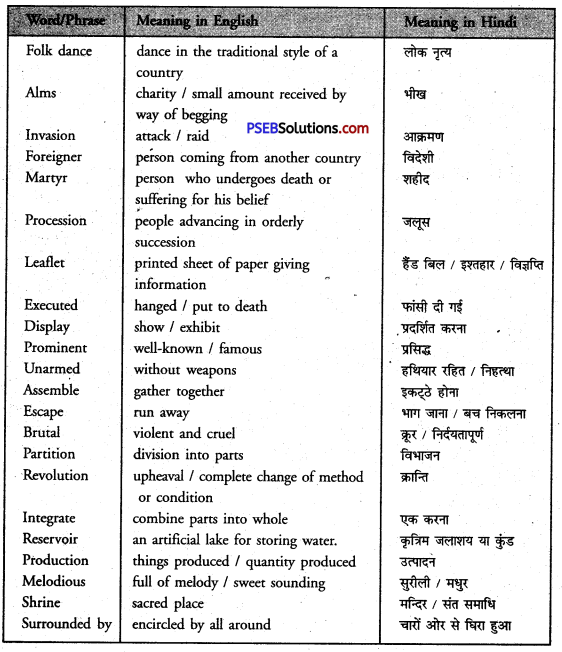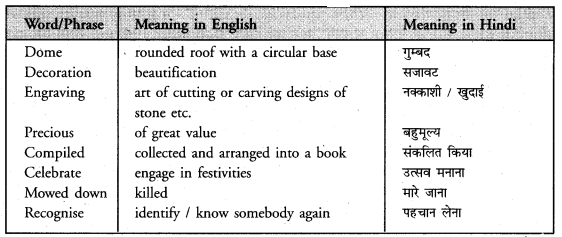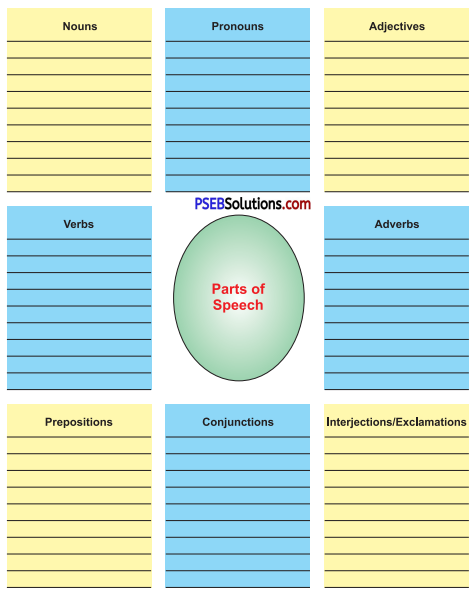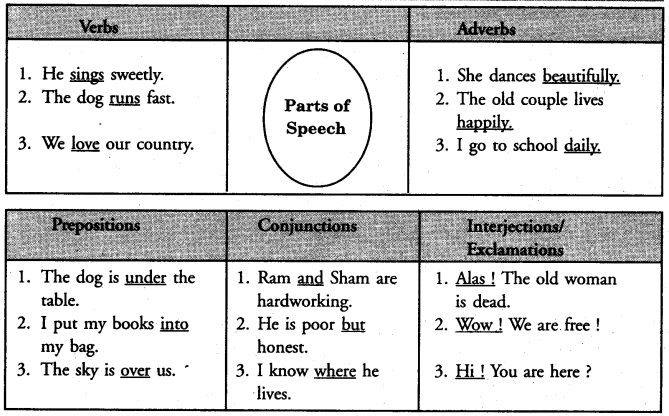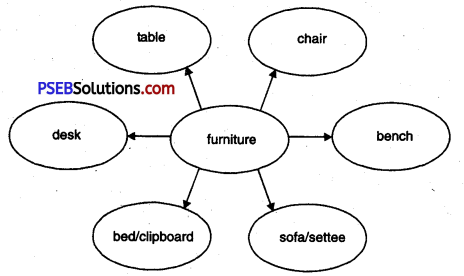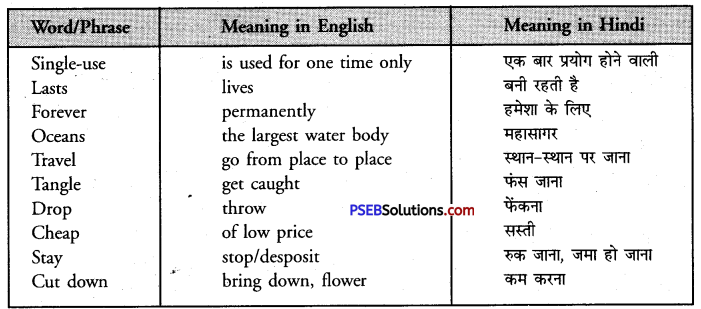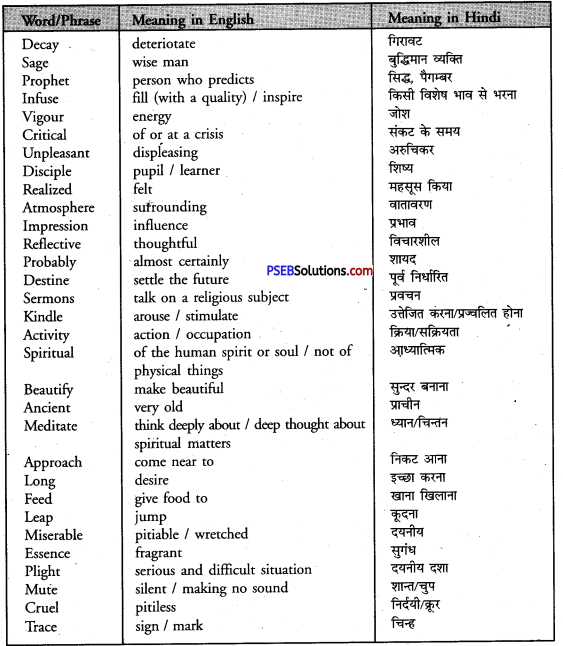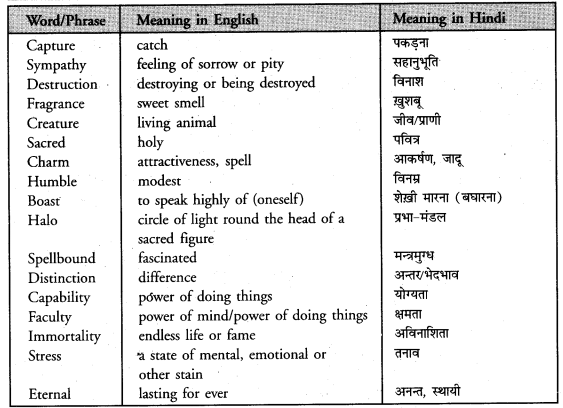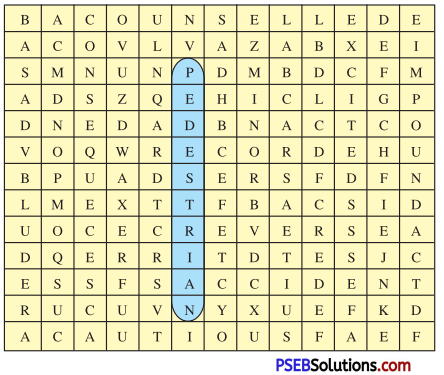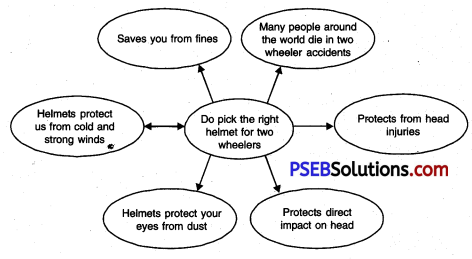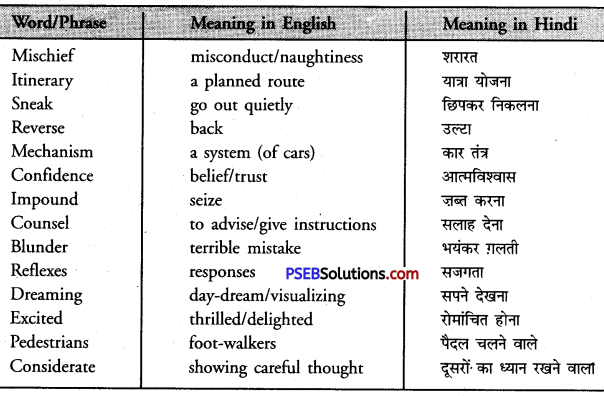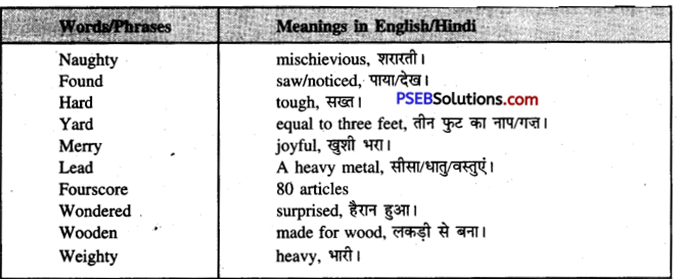Punjab State Board PSEB 10th Class English Book Solutions English Main Course Book Chapter 6 The Home-Coming Textbook Exercise Questions and Answers.
Class 10th English Main Course Book Chapter 6 The Home-Coming Question Answers
The Home-Coming Class 10 Questions and Answers
Short Answer Type Questions
Question 1.
Who was Phatik ?
Answer:
Phatik was a fourteen-year-old boy. He was the ringleader among the boys of his village. His fertile mind always thought of new mischiefs.
फटिक एक चौदह-वर्षीय लड़का था। वह अपने गाँव के लड़कों का मुखिया था। उसका उपजाऊ दिमाग़ हमेशा नई-नई शरारतें सोचता रहता था।
Question 2.
What was the new mischief Phatik thought of ?
Answer:
There was a log lying on the bank of the river. He planned to roll the log away with the help of the other boys. In this way, he wanted to annoy the owner and enjoy the fun.
नदी के किनारे लकड़ी का एक लट्ठा पड़ा हुआ था। उसने अन्य लड़कों की मदद से लटे को लुढ़का कर दूर ले जाने की योजना बनाई। इस प्रकार वह मालिक को परेशान करना और इसका आनन्द उठाना चाहता था।

Question 3.
Why were Phatik and his friends annoyed with Makhan ?
Answer:
Phatik and the other boys wanted to roll the log away. But Makhan came and sat down on the log. This annoyed Phatik and his friends.
फटिक और दूसरे लड़के लट्ठ को लुढ़का कर दूर ले जाना चाहते थे। परन्तु माखन आया और लट्ठ पर बैठ गया। इससे फटिक और उसके मित्र नाराज़ हो गए।
Question 4.
What was Phatik’s ‘new manoeuvre’ ?
Answer:
Phatik asked his followers to roll the log with Makhan sitting over it. This, he thought, would give them added amusement.
फटिक ने अपने साथियों से कहा कि वे लढे को उसके ऊपर बैठे हुए माखन सहित ही लुढ़का दें। उसने सोचा कि इससे उन्हें और भी ज्यादा मज़ा आएगा।
Question 5.
Why did Phatik beat Makhan even in the presence of his mother ?
Answer:
Makhan lied to his mother that Phatik had beaten him. Phatik could not bear this. Therefore, he beat Makhan.
माखन ने अपनी मां से झूठ बोल दिया कि फटिक ने उसे पीटा था। फटिक से यह सहन न हुआ। इसलिए उसने माखन की पिटाई कर दी।
Question 6.
Was Makhan speaking the truth?
Answer:
No, he was not speaking the truth. Phatik had not beaten him. In fact, it was Makhan who had beaten Phatik.
नहीं, वह सच नहीं बोल रहा था। फटिक ने उसकी पिटाई नहीं की थी। वास्तव में, यह माखन था जिसने फटिक की पिटाई की थी।
Question 7.
Why did Phatik’s mother want to send him away to her brother’s house ?
Answer:
The mother had a prejudice against Phatik. She thought he would some day drown Makhan in the river, or break his head in a fight. Therefore, she wanted to send him away.
मां फटिक के प्रति एक ग़लत धारणा रखती थी। वह सोचती थी कि किसी दिन वह माखन को या तो नदी में डुबो देगा या लड़ाई में उसका सिर फोड़ देगा। इसलिए वह उसे वहां से भेज देना चाहती थी।

Question 8.
How was Phatik received by his aunt ?
Answer:
The aunt was not at all pleased. She thought of Phatik as an unnecessary addition to her family.
(फटिक की) मामी तनिक भी प्रसन्न न हुई। वह फटिक को अपने परिवार में एक अनावश्यक वृद्धि मानती थी।
Question 9.
Why couldn’t Phatik do well at school ?
Or How did Phatik fare at his new school in Kolkata ?
Answer:
Phatik was ill-treated at his uncle’s house. He was always sad. He could not put his mind to his studies. Naturally, he could not do well at school.
फटिक के साथ उसके मामा के घर पर बहुत बुरा व्यवहार किया जाता था। वह सदा उदास रहता था। वह अपना ध्यान पढ़ाई में नहीं लगा पाता था। स्वाभाविक रूप से, वह स्कूल में अच्छा प्रदर्शन न कर पाया।
Question 10.
How did Phatik’s aunt behave on learning about the loss of his book ?
Answer:
The aunt called Phatik a country lout. She said that she couldn’t buy him new books five times a month.
मामी ने फटिक को गांव का एक गंवार कहा। उसने कहा कि वह उसे महीने में पांच बार नई पुस्तकें खरीद कर नहीं दे सकती।
Question 11.
What was the immediate reason for Phatik’s departure from his uncle’s house ?
Answer:
One day, Phatik had a bad headache and a shivering fit. He feared he would become a nuisance to his aunt. That was why he left the house.
एक दिन फटिक को भयानक सिर-दर्द हुआ और कंपकंपी छिड़ गई। उसे भय था कि वह अपनी मामी के लिए मुसीबत बन जाएगा। इसी कारण से उसने घर छोड़ दिया।
Question 12.
Why did Bishamber send for his sister ?
Answer:
Phatik was seriously ill. The doctor said that the boy’s condition was critical. That was why Bishamber sent for his sister.
फटिक गम्भीर रूप से बीमार हो गया। डाक्टर ने कहा कि लड़के की हालत नाजुक थी। इसी कारण से बिशम्बर ने अपनी बहन को बुला भेजा।

Question 13.
What were Phatik’s last words ?
Answer:
Phatik’s last words were : ‘Mother, the holidays have come.’
फटिक के अन्तिम शब्द थे : ‘मां, छुट्टियां आ गई हैं।’
Long Answer Type Questions
Question 1.
How does Phatik feel when he is at Kolkata ?
Answer:
While at Kolkata, Phatik feels like a fish out of water. His aunt ill-treats him. His cousins mock at him. At school, his teachers cane him daily. All this makes Phatik’s life very miserable. He longs to go back to his village home.
कोलकाता में रहने के दौरान फटिक पानी से बाहर आई मछली की भांति महसूस करता है। उसकी मामी उससे बुरा व्यवहार करती है। उसके ममेरे भाई उसका मजाक उड़ाते हैं। स्कूल में उसके अध्यापक उसे प्रतिदिन बैंतों से मारते हैं। इन सबसे फटिक का जीवन बहुत दुःख-भरा हो जाता है। वह वापस अपने गांव के घर में जाने के लिए तड़पता रहता है।
Question 2.
Why does Bishamber want to take Phatik to Kolkata ?
Answer:
The mother is prejudiced against Phatik. She thinks of him as a big nuisance. She calls him lazy, wild and disobedient. Bishamber wants to help his widowed sister. So he offers to take Phatik with him to Kolkata. He says he will educate him there with his own children.
मां की फटिक के प्रति एक ग़लत धारणा बनी हुई है। वह उसे एक बड़ी सिरदर्दी मानती है। वह उसे निकम्मा, असभ्य और गुस्ताख कहती है। बिशम्बर अपनी विधवा बहन की मदद करना चाहता है। इसलिए वह फटिक को अपने साथ कोलकाता ले जाने की पेशकश करता है। वह कहता है कि वह वहां उसे अपने खुद के बच्चों के साथ शिक्षा दिलाएगा।
Question 3.
Who is responsible for Phatik’s death ?
Answer:
It is solely the cruel aunt who is responsible for Phatik’s death. She dislikesthe boy from the very beginning. She thinks of him as an unnecessary addition to her family. She ill-treats him all the time. Even when the poor boy is critically ill, she calls him a nuisance. We can say that the heartless witch causes the poor boy’s death in the end.
यह पूरी तरह से निर्दय मामी है जो फटिक की मृत्यु के लिए ज़िम्मेदार है। वह शुरू से ही लड़के को नापसन्द करती है। वह उसे अपने परिवार में एक अनावश्यक वृद्धि समझती है। वह उसके साथ हर समय बुरा व्यवहार करती है। जब वह बेचारा लड़का भयंकर रूप से बीमार भी होता है तो भी वह उसे एक सिरदर्दी कहती है। हम कह सकते हैं निर्दय चुडैल अन्त में बेचारे लड़के की मृत्यु का कारण बनती है।
Question 4.
Write a character-sketch of Bishamber.
Answer:
Bishamber is Phatik’s maternal uncle. He has a lot of love for his widowed sister. He finds that Phatik is a trouble for his sister. He offers to take him to Kolkata. He says he will educate him there with his own children. Truly, Bishamber is a loving brother. But he is not imaginative. He commits a blunder in taking Phatik to Kolkata.
बिशम्बर फटिक का मामा है। वह अपनी विधवा बहन से बहुत प्यार करता है। वह देखता है कि फटिक उसकी बहन के लिए एक मुसीबत है। वह उसे कोलकाता ले जाने की पेशकश करता है। वह कहता है कि वह उसे वहां अपने खुद के बच्चों के साथ पढ़ाएगा। सचमुच बिशम्बर एक प्यार करने वाला भाई है। किन्तु वह कल्पनाशील नहीं है। वह फटिक को कोलकाता ले जाने में बड़ी भारी ग़लती करता है।
Question 5.
Write a character-sketch of Makhan.
Answer:
Makhan is Phatik’s younger brother. He is the darling of his mother. She calls him as good as gold. But we see that Makhan is not that good. He is spoilsport. He comes and sits on the log when the other boys want to roll it away. He also tells lies to his mother about Phatik.
माखन फटिक का छोटा भाई है। वह अपनी मां का लाडला है। वह उसे सोने के जैसा अच्छा कहती है। किन्तु हम देखते हैं कि माखन इतना अच्छा नहीं है। वह रंग में भंग डालने वाला है। जब दूसरे लड़के लटे को लुढ़काना चाहते हैं तो वह आ कर इसके ऊपर बैठ जाता है। वह फटिक के बारे में अपनी मां के सामने झूठ भी बोलता है।
Question 6.
Write a character-sketch of Phatik’s aunt.
Answer:
Phatik’s aunt is a heartless witch. She dislikes Phatik from the very beginning. She thinks of him as an unnecessary addition to her family. She ill-treats him all the time. Even when the poor boy is critically ill, she calls him a nuisance. She has no womanly feelings in her heart. It is she who can be held solely responsible for Phatik’s death.
फटिक की मामी एक निर्दय चुडैल है। वह फटिक को शुरू से ही नापसन्द करती है। वह उसे अपने परिवार में एक अनावश्यक वृद्धि मानती है। वह हर समय उसके साथ दुर्व्यवहार करती है। जब बेचारा लड़का भयानक रूप से बीमार होता है, तब भी वह उसे एक सिरदर्दी कहती है। उसके दिल के अन्दर औरतों वाली कोई भावनाएं नहीं हैं। यह वही है जिसे फटिक की मृत्यु के लिए पूरी तरह से ज़िम्मेदार ठहराया जा सकता है।
Question 7.
Write a character-sketch of Phatik’s mother.
Answer:
Phatik’s mother is a simple-hearted lady. She is a widow and has two sons to bring up. She is prejudiced against Phatik, the elder one. But it does not mean she does not love him. She agrees to send him to Kolkata with her brother. But then she feels sad to see how anxious Phatik is to go. She is after all a mother !
फटिक की मां एक सरल हृदय वाली औरत है। वह एक विधवा है और उसके पास पालन-पोषण करने के लिए दो पुत्र हैं। उसे बड़े पुत्र, फटिक, के प्रति एक ग़लत धारणा है। किन्तु इसका अर्थ यह नहीं कि वह उससे प्यार नहीं करती है। वह उसे अपने भाई के साथ कोलकाता भेजने के लिए सहमत हो जाती है। किन्तु फिर वह यह देख कर उदास हो जाती है कि फटिक जाने के लिए कितना उत्सुक है। आखिर वह एक मां ही तो है!

Question 8.
Give a pen-portrait of Phatik.
Answer:
Phatik is a fourteen-year-old boy. He is the ringleader among the boys of his village. He has a fertile mind. He keeps thinking of new mischiefs. His mother is fed up with him. She sends him away to Kolkata with her brother. Now Phatik begins to feel like a fish out of water. He longs to go back to his village home. But he has to wait until the holidays of his life come !
फटिक चौदह वर्ष की आयु का एक लड़का है। अपने गांव के लड़कों के मध्य वह एक मुखिया है। उसका एक उपजाऊ दिमाग है। वह नई-नई शरारतें सोचता रहता है। उसकी मां उससे तंग आई हुई है। वह उसे अपने भाई के साथ कोलकाता भेज देती है। अब फटिक बिना पानी की मछली की भान्ति महसूस करने लगता है। वह अपने गांव वाले घर को वापस चला जाना चाहता है। किन्तु उसे अपने जीवन की छुट्टियां शुरू होने का इन्तजार करना पड़ता है !
Question 9.
Describe the quarrel between Phatik and Makhan.
Answer:
Phatik and his friends want to roll a log away. But Makhan comes and sits on the log. He does not care for Phatik’s warning: Phatik asks the boys to roll the log. As they do so, Makhan falls down. Now Makhan gets up, falls upon Phatik and scratches his face. Then he goes home crying. He tells his mother that Phatik has beaten him. Phatik can’t bear this telling of lies. He rains on Makhan a shower of blows.
फटिक तथा उसके मित्र एक लटे को लुढ़का कर दूर ले जाना चाहते हैं। किन्तु माखन आ कर लटे के ऊपर बैठ जाता है। वह फटिक की चेतावनी की परवाह नहीं करता। फटिक लड़कों से कहता है कि वे लढे को लुढ़का दें। जब वे ऐसा करते हैं तो माखन नीचे गिर जाता है। अब माखन उठ खड़ा होता है, फटिक पर झपटता है और उसके चेहरे को नोच डालता है। फिर वह रोता हुआ घर चला जाता है। वह अपनी मां से कहता है कि फटिक ने उसे मारा है। फटिक इस झूठ बोलने को सहन नहीं कर पाता। वह माखन पर घूसों की बौछार कर देता है।
Vocabulary and Grammar
Question 1.
Fill in the blanks with adjective forms of the following words :
Answer:
1. fertile
2. dignified
3. futile
4. delirious
5. philosophical.
Question 2.
Match the words in Column A with their opposites in Column B :
Answer:
A — B
unanimously — individually
timidly — boldly
futile — useful
furious — calm
fertile — barren
earthly — heavenly
impotent — potent
exhausted — invigorated
bequeath — take, receive
despised — liked
jeer — applaud
Question 3.
Makhan was ‘as good as gold’. Complete the following expressions in the same way :
Answer:
1. as white as snow.
2. as black as coal.
3. as innocent as a baby.
4. as obstinate as a mule.
5. as gentle as, a lamb.
Question 4.
Fill in the blanks with the correct verb form of the italicized words :
Answer:
1. glorify
2. sulked
3. amused
4. distressed
5. exhausted
6. despised
7. lost.
Question 5.
Fill in the blanks with suitable articles :
Answer:
1. The Ganga is a sacred river.
2. He reads the Bible every day.
3. The man struck a match.
4. Where is the money to come from?
5. He began a series of experiments.
6. I was on an official visit.
7. There was an elephant on the road.
Question 6.
Fill in the blanks with the passive forms of the verbs given in italics to complete the following sentences :
Answer:
1. informed
2. be posted
3. should be taken
4. be helped
5. would be closed.

Question 7.
Put proper punctuation marks in the following passage and use capital letters wherever necessary :
Answer:
The effect of books is twofold. Books preserve knowledge in time and spread it in space. Suppose, for example, that you think of an important idea or a beautiful poem. Unless you can write it down, your idea or poem will probably die.
Objective Type Questions
Question 1.
What was the name of Phatik’s brother ?
Answer:
Makhan
Question 2.
Phatik’s uncle lived in ………
(i) Mumbai
(ii) Dehradun
(iii) Calcutta
(iv) Chandigarh.
Answer:
(iii) Calcutta
Question 3.
Phatik’s aunt welcomed Phatik in her home. (True/False)
Answer:
False
Question 4.
Phatik’s …………….. did not like his ways.
(i) mother
(ii) sister
(iii) student
(iv) neighbours.
Answer:
(i) mother
Question 5.
Phatik wanted to move a ……………. from its place.
Answer:
log
Question 6.
Phatik’s last words were : ‘Mother, ………… have come.
(i) friends
(ii) aunt and uncle
(iii) brothers
(iv) holidays.
Answer:
(iv) holidays.
Answer each of the following in one word / phrase / sentence :
Question 1.
Name the author of the story, ‘The Home-coming’.
Answer:
Rabindranath Tagore.
Question 2.
Who was Makhan ?
Answer:
He was Phatik’s younger brother.
Question 3.
Did the mother of Phatik and Makhan treat them equally ?
Answer:
No, she loved Makhan much more than Phatik.
Question 4.
What offer did Bishamber make to Phatik’s mother ?
Answer:
He offered to take Phatik to his home in Kolkata.
Question 5.
Was Phatik happy in going to Kolkata ?
Answer:
Yes, he was extremely happy in going to the big city.
Question 6.
Was Phatik’s mother sad in parting from her son ?
Answer:
No, she felt greatly relieved to get rid of him.
Question 7.
How did Phatik’s aunt feel on seeing Phatik in her home ?
Answer:
She was unhappy to be burdened with an unwanted responsibility.
Question 8.
How did Phatik fare in his school in Kolkata ?
Answer:
He was considered a very stupid student.
Question 9.
Who brought Phatik back to his uncle’s house ?
Answer:
Two constables.
Question 10.
What were the last words murmured by Phatik ?
Answer:
“Mother, the holidays have come.”

Complete the following :
1. Makhan was Phatik’s …………
2. The surname of Phatik’s family was ………..
3. Phatik was considered the ……. of the village boys.
4. On Makhan’s false complaint, the mother rained. …………….. on Phatik.
5. Bishamber had left ………………. and started living in …….
6. Phatik died while he was living with his
Answer:
1. younger brother
2. Chakravarti
3. ringleader
4. blows
5. Mumbai, Kolkata
6. uncle.
Write True or False against each statement :
1. Phatik and Makhan were cousins.
2. Makhan’s mother was Phatik’s stepmother.
3. Phatik’s mother readily agreed to her brother’s offer.
4. Phatik was a very brilliant student in Kolkata.
5. Phatik was brought back to home by his mother.
6. Phatik was very cruelly treated by his aunt.
Answer:
1. False
2. False
3. True
4. False
5. False
6. True.
Choose the correct option for each of the following :
Question 1.
Phatik was a …………………. in his village.
(a) brilliant student
(b) an obedient son
(c) well-behaved boy
(d) ringleader of the boys.
Answer:
(d) ringleader of the boys.
Question 2.
Bishamber was …………. of the Chakravartis.
(a) a close relative
(b) a neighbour
(c) a family friend
(d) the landlord.
Answer:
(a) a close relative
Question 3.
Phatik’s aunt behaved with Phatik very
(a) lovingly
(b) nobly
(c) cruelly
(d) none of the above.
Answer:
(c) cruelly
Question 4.
Phatik met his death …..
(a) after a long illness
(b) after a short illness
(c) at his hometown.
(d) in a hospital.
Answer:
(b) after a short illness
The Home-Coming Summary & Translation in English
The Home-Coming Introduction:
This is the story of a fourteen-year-old boy, Phatik. He is very mischievous. He is sent to Kolkata with his maternal uncle. But there, he is not treated well by his aunt as well as his cousins. He becomes seriously ill and dies in the end. The underlying idea of this story is that home is a place where we find love – a place that our feet may leave, but not our hearts. Though it rains gold and silver in another place and daggers and spears at home, yet it is better to be at home.
The Home-Coming Summary & Translation in English
(Page 84)
Phatik Chakravarti was the ring – leader amongst the boys of the village. One day a plan for new mischief entered his head. There was a heavy log lying on the mud-flat of the river, waiting to be shaped into a mast for a boat. His plan was that they should all work together to shift the log by main force from its place and roll it away. The owner of the log would be angry and surprised, while they would all enjoy the fun. Everyone supported the proposal, and it was carried unanimously .
But just as the fun was about to begin, Makhan, Phatik’s younger brother, sauntered up without a word and sat down on the log in front of them all. The boys were puzzled for a moment. One of them pushed him rather timidly, and told him to get up; but he remained quite unconcerned. He appeared like a young philosopher meditating on the futility of things. Phatik was furious. “Makhan,” he cried, “if you don’t get up this minute, I’ll thrash6 you !”
Makhan only moved to a more comfortable position. Now, if Phatik was to keep his regal dignity before the public, it was clear that he must carry out his threat. But his courage failed him at the crisis. His fertile brain, however, rapidly seized upon a new maneuver which would discomfit his brother and afford his followers added amusement. He gave the word and command to roll the log and Makhan over together. Makhan heard the order and made it a point of honour to stick on. But like those who attempt earthly fame in other matters, he overlooked the fact that there was peril in it.

(Page 85)
The boys began to heave at the log with all their might calling out, “One, two, three, go !” At the word ‘go’ the log went; and with it went Makhan’s philosophy, glory and all. The other boys shouted themselves hoarse with delight. But Phatik was a little frightened. He knew what was coming. And he was not mistaken, for Makhan rose from Mother Earth blind as Fate and screaming like the Furies. He rushed at Phatik, scratched his face, beat him and kicked him, and then went crying home. The first act of the drama was over.
Phatik wiped his face, and sitting down on the edge of a sunken barge by the river bank, began to nibble at a piece of grass. A boat came up to the landing and a middle-aged man, with grey hair and dark moustache, stepped on to the shore. He saw the boy sitting there doing nothing and asked him where the Chakravartis lived. Phatik went on nibbling the grass and said : ‘Over there’; but it was quite impossible to tell where he pointed. The stranger asked him again. He swung his legs to and from on the side of the barge and said : ‘Go and find out’ and continued to nibble the grass.
But, at the moment, a servant came down from the house and told Phatik that his mother wanted him. Phatik refused to move. But on this occasion the servant was the master. He roughly took Phatik up and carried him, kicking and struggling in impotent rage. When Phatik entered the house, his mother saw him and called out angrily : ‘So you have been hitting Makhan again ?’
Phatik answered indignantly : ‘No, I haven’t ! Who told you that I had ?’
His mother shouted : ‘Don’t tell lies ! You have.’ Phatik said sullenly ‘I tell you, I haven’t. You ask Makhan !‘ But Makhan thought it best to stick to his previous statement. He said : ‘Yes, mother, Phatik did hit me.’
Page -86
Phatik’s patience was already exhausted. He could not bear this injustice. He rushed at Makhan and rained on him a shower of blows : ‘Take that,’ he cried, ‘and that, and that, for telling lies.’
His mother took Makhan’s side in a moment and pulled Phatik away, returning his blows with equal vigour. When Phatik pushed her aside , she shouted out: ‘What! You little villain ! Would you hit your own mother ?’
It was just at this critical moment that the grey-haired stranger arrived. He asked what had occurred. Phatik looked sheepish and ashamed. But when his mother stepped back and looked at the stranger, her anger was changed to surprise, for she recognized her brother and cried : ‘Why, Dada ! Where have you come from ?’ As she said these words, she bowed to the ground and touched his feet.
Her brother Bishamber had gone away soon after she had married, and had started business in Mumbai. She herself had lost her husband while he was there. Bishamber had now come back to Kolkata, and had at once made enquiries concerning his sister. As soon as he found out where she was, he had hastened to see her.
The next few days were full of rejoicing. The brother asked how the two boys were being brought up. He was told by his sister that Phatik was a perpetual nuisance. He was lazy, disobedient and wild. But Makhan was as good as gold, as quiet as a lamb, and very fond of reading. Bishamber kindly offered to take Phatik off his sister’s hands and educate him with his own children in Kolkata. The widowed mother readily agreed. When his uncle asked Phatik if he would like to go to Kolkata with him, his joy knew no bounds, and he said : ‘Oh, yes, uncle !’ in a way that made it quite clear that he meant it.
It was an immense relief to the mother to get rid of Phatik. She had a prejudice against the boy, and no love was lost between the two brothers. She was in daily fear that he would some day either drown Makhan in the river, or break his head in a fight, or urge him on into some danger. At the same time she was a little distressed to see Phatik’s extreme eagerness to leave his home.

Page 87
Phatik, as soon as all was settled, kept asking his uncle every minute when they were to start. He was on pins all day long with excitement and lay awake most of the night. He bequeathed to Makhan, in perpetuity, his fishing-rod, his big kite, and his marbles. Indeed at this time of departure, his generosity towards Makhan was unbounded. When they reached Kolkata, Phatik met his aunt for the first time. She was by no means pleased with this unnecessary addition to her family. She found her own three boys quite enough to manage without taking anyone else. And to bring a village lad of fourteen into their midst was terribly upsetting1. Bishamber should really have thought twice before committing such an indiscretion.
In this world there is no worse nuisance than a boy at the age of fourteen. He is neither ornamental nor useful. It is impossible to shower affection on him as on a smaller ,boy; and he is always getting in the way. If he talks with a childish lisp he is called a baby, and if in a grown-up way he is called impertinent. In fact, “talk of any kind from him is resented. Then he is at the unattractive, growing age. He grows out of his clothes with indecent haste his face grows suddenly angular and unsightly.
It is easy to excuse the shortcomings of early childhood, but it is hard to tolerate even unavoidable lapses in a boy of fourteen. He becomes painfully self-conscious, and when he talks with elderly people he is either unduly forward, or else so unduly shy that he appears ashamed of his own existence. Yet, it is at this age that in his heart of hearts, a young lad most craves recognition and love; and he becomes the devoted slave of any one who shows him consideration. But none dare openly love him, for that would be regarded as undue indulgence and therefore bad for the boy. So, what with scolding and chiding, he becomes very much like a stray dog that has lost its master.
Page 88
His own home is the only paradise that a boy of fourteen can know. To live in a strange house with strange people is little short of torture; while it is the height of bliss to receive the kind looks of women and never to suffer their slights. It was an anguish to Phatik to be an unwelcome guest in his aunt’s house, constantly despised and slighted by this elderly woman.
If she ever asked him to do anything for her, he would be so overjoyed that his joy would seem exaggerated; and then she would tell him not to be so stupid, but to get on with his lessons. ’ There was no more backward boy in the whole school than Phatik. He gaped and remained silent when the teacher asked him a question, and like an overladen ass patiently suffered the many thrashings that were meted out to him. When other boys were out at play, he stood wistfully by the window and gazed at the roofs of the distant houses. And if by chance he espied children playing on the open terrace of a roof, his heart would ache with longing.
One day he summoned up all his courage, and asked his uncle, ‘Uncle, when can I go home ?’ His uncle and. ‘Wait till the holidays come.’ But the holidays would not come till October and there was still a long time to wait.
One day Phatik lost his lesson book. Even with the help of books he had found it very difficult to prepare his lesson. But, now, it became impossible. Day after day the teacher caned him unmercifully. He became so abjectly miserable that even his cousins were ashamed to own him. They began to jeer and insult him more than even the other boys did. At last he went to his aunt and told her that he had lost his book.

Page 89
With an expression of the greatest contempt she burst out : ‘You great, clumsy, country lout ! How can I afford to buy you new books five times a month, when I have my own family to look after ?’ That night, on his way back from school, Phatik had a bad headache and a shivering fit. He felt that he was going to have an attack of malaria. His one great fear was that he might be a nuisance to his aunt.
The next morning Phatik was nowhere to be seen. Search in the neighbourhood proved futile. The rain had been pouring in torrents all night, and those who went out to look for the boy were drenched to the skin. At last Bishamber asked the police to help him. At nightfall a police van stopped at the door of the house. It was still raining and the streets were flooded. Two constables carried Phatik out in their arms and placed him before Bishamber. He was wet through from head to foot, covered with mud, while, his face and eyes were flushed with fever and his limbs were trembling. Bishamber carried him in his arms and took him inside the house. When his wife saw him, she exclaimed : ‘What a heap of trouble this boy has given us ! Hadn’t you better send him home ?’
Phatik heard her words and sobbed aloud : ‘Uncle, I was just going home; but they dragged me back again.’ The fever rapidly increased, and throughout the night.the boy was delirious. Bishamber brought in a doctor. Phatik opened his eyes, and looking up to the ceiling said vacantly ‘Uncle, have the holidays come yet ?’
Bishamber wiped the tears from his eyes and took Phatik’s thin burning hands in his own and sat by his side through the night. Again the boy began to mutter, till at last his voice rose almost to a shriek. ‘Mother !’ he cried, ‘don’t beat me like that Mother ! I am telling the truth.’
(Page 90)
The next day Phatik, for a short time, became conscious. His eyes wandered round the room as if he expected someone to come. At last, with an air of disappointment, his head sank back on the pillow. With a deep sigh he turned his face to the wall. Bishamber read his thoughts, and bending down his head whispered ‘Phatik, I have sent for your mother.
The day dragged on. The doctor said in a troubled voice that the boy’s condition was very critical. Phatik began to cry out: ‘By the mark three fathoms. By the mark four fathoms. By the mark.’ Many times had he heard the sailors on the river-steamers calling out the mark on the lead line. Now he was himself plumbing an unfathomable sea.
Later in the day Phatik’s mother burst into the room like a whirlwind and rocking herself to and fro from side to side, began to moan and cry. Bishamber tried to calm her, but she flung herself on the bed, and cried ‘Phatik, my darling, my darling.’Phatik stopped his restless movements for a moment. His hands ceased beating up and down. He said ‘Eh ?’ The mother cried again: ‘Phatik, my darling, my darling.’Very slowly Phatik’s eyes wandered, but he could no longer see the people around his bed. At last he murmured ‘Mother, the holidays have come.’
The Home-Coming Summary & Translation in Hindi
The Home-Coming Introduction:
यह कहानी एक चौदह-वर्षीय लड़के फटिक की है। वह बहुत शरारती है। उसे अपने मामा के साथ कोलकाता भेज दिया जाता है। परन्तु वहां न तो उसकी मामी और न ही उसके ममेरे भाई उसके साथ अच्छा व्यवहार करते हैं। वह गम्भीर रूप से बीमार हो जाता है और अन्त में उसकी मृत्यु हो जाती है। इस कहानी में दिया गया विचार यह है कि घर एक ऐसा स्थान होता है जहां हमें स्नेह मिलता है – एक ऐसा स्थान जिसे हमारे पैर तो छोड़ सकते हैं, परन्तु हमारा दिल नहीं। यद्यपि किसी अन्य जगह में सोने-चांदी की बरसात ही क्यों न हो रही हो और घर पर कटारों और भालों की, फिर भी घर पर होना बेहतर होता है। कठिन शब्दार्थ तथा सम्पूर्ण कहानी का हिन्दी अनुवाद
The Home-Coming Summary & Translation in Hindi
(Page 84)
फटिक चक्रवर्ती गांव के लड़कों का मुखिया था। एक दिन उसके दिमाग में किसी नई शरारत के लिए योजना सूझी। नदी की कीचड़दार तलहटी पर लकड़ी का एक भारी लट्ठा पड़ा हुआ था जिससे एक नाव का मस्तूल बनाया जाना था। उसकी योजना थी कि वे सभी मिलकर ज़ोर लगाएंगे और उस लट्टे को पूरी ताकत लगाकर उसकी जगह से हटा देंगे और इसे लुढ़का कर वहां से दूर ले जाएंगे। लट्टे का मालिक क्रोध से भर जाएगा और आश्चर्यचकित होगा जबकि वे सभी इस खेल का आनन्द लेंगे। प्रत्येक लड़के ने इस सुझाव का समर्थन किया और इसे एकमत से स्वीकार कर लियागया।
किन्तु जैसे ही खेल शुरू होने वाला था, फटिक का छोटा भाई माखन बिना कोई शब्द कहे टहलता हुआ आया और उन सब के सामने लट्टे के ऊपर बैठ गया। लड़के एक पल के लिए उलझन में पड़ गए। उनमें से एक ने उसे कुछ भीरुता के साथ धक्का दिया और उससे उठने को कहा; किन्तु वह बिल्कुल कोई परवाह किए बिना बैठा रहा। वह एक छोटे दार्शनिक के जैसा लग रहा था जो चीज़ों की व्यर्थता के बारे में चिन्तन कर रहा था। फटिक अत्यन्त क्रोधित हो गया। “माखन,” उसने चिल्लाते हुए कहा, “यदि तुम इसी पल नहीं उठोगे तो मैं तुम्हारी अच्छी पिटाई कर दूंगा।”
माखन केवल और अधिक आरामदायक स्थिति में हो गया। अब यदि फटिक ने जनता के सामने अपनी राजसी शान कायम रखनी थी तो यह स्पष्ट था कि वह अपनी धमकी को पूरा करे। किन्तु उस संकटपूर्ण स्थिति में उसकी हिम्मत जवाब दे गई। उसके आविष्कारी दिमाग़ ने तुरन्त ही एक नई तरकीब सोच ली जिससे उसका भाई परेशान भी हो जाए और उसके अनुयायियों को अतिरिक्त आनन्द भी मिल जाए। उसने उस लटे को और माखन दोनों को इकट्ठे ही लुढ़काने का आदेश दे दिया। माखन ने इस आदेश को सुना और डटे रहने को सम्मान की बात बना ली। परन्तु उन लोगों की तरह, जो अन्य विषयों में भौतिक ख्याति प्राप्त करने का यत्न करते हैं, उसने इस तथ्य की अनदेखी कर दी कि ऐसा करने में ख़तरा था।

(Page 85)
लड़के अपनी पूरी शक्ति से लट्टे पर जोर लगाने लगे और कहने लगे, “एक, दो, तीन, चलो!” ‘चलो’ शब्द के साथ ही लट्ठा लुढ़कने लगा, और इसके साथ ही माखन का दर्शन, उसकी शान और सब कुछ जाता रहा। अन्य लड़कों का खुशी से चिल्लाते हुए गला बैठ गया। किन्तु फटिक अब थोड़ा-सा डर गया। वह नहीं था, क्योंकि माखन धरती माता पर से उठा, भाग्यदेव की भान्ति अन्धा बना हुआ और क्रोध की देवियों की भान्ति चिल्लाता हुआ। वह फटिक के ऊपर झपटा, उसके चेहरे को खरोंचा, उसे पीटा और ठोकरें मारी, और फिर रोता हुआ घर चला गया। नाटक का प्रथम अंक समाप्त हो गया। फटिक ने अपना मुंह पोंछा और नदी के किनारे पड़ी एक धंसी हुई नाव के छोर पर बैठकर घास के एक तिनके को कुतरने लगा।
घाट पर एक नाव आ कर रुकी और अधेड़ आयु का एक व्यक्ति, जिसके बाल सफेद थे और मूंछे काली थीं, उतर कर तट पर आया। उसने उस लड़के को वहां कुछ न करते हुए देखा और उससे पूछा कि चक्रवर्ती परिवार कहां रहता था। फटिक ने घास को कुतरना जारी रखा और कहा, “वहां पर,”, किन्तु यह बता पाना असम्भव था कि उसने किस तरफ इशारा किया था। अजनबी ने उससे दुबारा पूछा। फटिक ने अपनी टांगें नाव की साइड के साथ इधर-उधर झुलाई और बोला ‘जाओ और पता कर लो’ और घास को कुतरना जारी रखा।
किन्तु उसी समय एक नौकर घर की तरफ से आया और उसने फटिक से कहा कि उसकी मां उसे बुला रही थी। फटिक ने हिलने से इन्कार कर दिया। किन्तु इस अवसर पर नौकर मालिक बना हुआ था। उसने फटिक को कर्कश ढंग से पकड़ा और उसे उठाकर ले गया, जब कि वह टांगें इधर-उधर पटक रहा था और बेअसर क्रोध से संघर्ष कर रहा था। जब फटिक ने घर में प्रवेश किया तो उसकी मां ने
उसे देखा और क्रोध में बोली, ‘तो तुमने माखन को फिर से पीटा है ?’ फटिक ने क्रोधपूर्वक उत्तर दिया, ‘नहीं, मैंने नहीं पीटा। तुमसे किसने कहा मैंने पीटा था ?’ उसकी मां चिल्लाई : ‘झूठ मत बोलो ! तुमने पीटा है।’ फटिक ने चिड़चिड़े ढंग से कहा : ‘मैं तुम्हें कहता हूँ कि मैंने नहीं पीटा है। तुम माखन से पूछ लो!’ किन्तु माखन ने अपनी पहले वाली बात पर डटे रहना ही सबसे अच्छा समझा। उसने कहा : ‘हां, मां, फटिक ने मुझे पीटा था।’
Page -86
फटिक का धैर्य पहले ही समाप्त हो चुका था। वह इस अन्याय को सहन न कर सका। वह माखन की तरफ झपटा और उस पर घूसों की बौछार कर दी। यह लो,’ वह चिल्लाते हुए बोला, ‘और यह लो, और यह लो, झूठ बोलने के लिए।’ उसकी मां ने एक पल में माखन का पक्ष ले लिया, और फटिक को खींच कर हटा दिया, उसके बूंसों को उसी शक्ति से लौटाते हुए। जब फटिक ने उसे एक तरफ धकेल दिया तो वह चिल्ला पड़ी, ‘अरे क्या! छोटे दुष्ट! क्या तुम अपनी मां को भी मारोगे ?’ इसी नाजुक घड़ी में वह सफ़ेद बालों वाला अजनबी आ पहुँचा। उसने पूछा कि क्या हुआ था। फटिक लज्जित और मुंह छिपाता हुआ लगने लगा।
किन्तु जब उसकी मां ने पीछे कदम हटाया और उसने अजनबी की तरफ देखा तो उसका क्रोध आश्चर्य में बदल गया क्योंकि उसने अपने भाई को पहचान लिया और चिल्ला उठी, ‘अरे, दादा ! आप कहां से आए ये शब्द कहने के साथ ही, वह ज़मीन को झुकी और उसके पांव छुए। उसका भाई, बिशम्बर, उसके विवाह के तुरन्त बाद ही घर से चला गया था और उसने मुम्बई में अपना व्यापार शुरू कर लिया था। वह अपना पति खो बैठी थी जिस दौरान बिशम्बर मुम्बई में था। बिशम्बर अब वापस कोलकाता आ गया था और उसने आते ही अपनी बहन के बारे में पूछताछ शुरू कर दी थी। जैसे ही उसे पता चला कि वह कहां पर थी, वह जल्दी से उसे मिलने चल पड़ा था|
अगले कई दिन हंसी-खुशी में बीत गए। भाई ने पूछा कि लड़कों का पालन-पोषण कैसे चल रहा था। उसकी बहन ने उसे बताया कि फटिक निरन्तर एक परेशानी था। वह सुस्त, गुस्ताख और मनमर्जी करने वाला था। किन्तु माखन सोने के जैसा अच्छा और मेमने के जैसा शांत था और पढ़ने का बहुत शौकीन था। बिशम्बर ने कृपापूर्वक फटिक को अपनी बहन के घर से ले जाने और उसे अपने ही बच्चों के साथ कोलकाता में पढ़ाने की पेशकश की। विधवा मां तुरन्त सहमत हो गई। जब फटिक के मामा ने उससे पूछा कि क्या वह उसके साथ कोलकाता चलना पसन्द करेगा तो उसकी खुशी की कोई सीमा न रही और उसने ऐसे ढंग से कहा ‘ओह, हां, मामा जी !’ जिससे साफ़ पता चलता था कि वह ऐसा ही चाहता था।
फटिक से छुटकारा पाना मां के लिए एक बड़ी भारी राहत की बात थी। उस लड़के के प्रति उसमें एक पूर्वाग्रह बना हुआ था और दोनों भाइयों में कोई भी प्यार नहीं रहा था। उसे प्रतिदिन डर लगा रहता था कि फटिक किसी दिन माखन को या तो नदी में डुबो देगा, या लड़ाई में उसका सिर फोड़ देगा या उसे किसी खतरे में break his धकेल देगा। किन्तु साथ ही फटिक की अपना घर छोड़ने की तीव्र उत्सुकता को देख कर उसे थोड़ा दुःख भी हो रहा था।
Page 87
जब सब बात तय हो गई तो फटिक ने हर पल अपने मामा से पूछना शुरू कर दिया कि उन्होंने कब रवाना होना था। वह सारा दिन उत्तेजना से बेचैन बना रहा और रात को अधिकतर समय जागता पड़ा रहा। उसने माखन को अपनी मछली पकड़ने की कांटी. अपनी बडी पतंग और अपने कंचे सदा के लिए (वसीयत में) दे दिए। सचमुच प्रस्थान के इस समय पर माखन के प्रति उदारता असीमित थी।
जब वे कोलकाता पहुंचे तो फटिक अपनी मामी से पहली बार मिला। अपने परिवार में इस अनावश्यक वृद्धि से वह किसी भी तरह प्रसन्न न हुई।
अपने परिवार में किसी अन्य को लिए बिना उसे अपने ही तीन लड़के सम्भालने काफी लग रहे थे। तथा उनके मध्य चौदह साल के एक ग्रामीण लड़के को ले आना अत्यन्त विचलित करने वाली बात थी। ऐसी नासमझी करने से पहले बिशम्बर को सचमुच दो बार सोच लेना चाहिए था। इस दुनिया में चौदह साल के लड़के से बढ़ कर कोई अन्य परेशानी नहीं होती है। वह न तो देखने में सुन्दर लगता है, और न ही उपयोगी। एक छोटे बच्चे की भान्ति उस पर स्नेह की बौछार करना असम्भव होता है; और वह हमेशा बाधा बना रहता है। यदि वह बचकानी तुतलाहट में बोले तो उसे बच्चा कहा जाता है और यदि वह सयाने व्यक्तियों की तरह व्यवहार करे तो उसे गुस्ताख कहा जाता है। वास्तव में उसकी किसी भी बात का बुरा मनाया जाता है।
इसके अलावा वह एक अनाकर्षक और बढ़ती हुई उम्र में होता है। एक अभद्र तेजी के साथ उसके वस्त्र उस पर छोटे होने लगते हैं : उसका चेहरा अचानक ही कोणाकार और कुरूप हो जाता है। छोटे बचपन की कमियों को क्षमा कर देना आसान होता है,किन्तु एक चौदह साल के लड़के की अपरिहार्य कमियों को भी सहन करना मुश्किल हो जाता है। उसे पीड़ाजनक ढंग से आत्मचेतना हो जाती है, और जब वह बड़ी उम्र के लोगों से बात करता है तो वह या तो अनुचित रूप से बड़बोला लगता है, या अनुचित रूप से इतना शर्मीला बन जाता है कि वह अपने अस्तित्व पर ही शर्मिंदा प्रतीत होता है।

फिर भी इसी उम्र में होता है कि चौदह साल का एक जवान लड़का अपने अन्तर्मन से पहचान और स्नेह की इच्छा अत्यधिक रखता है; और वह किसी भी ऐसे व्यक्ति का समर्पित गुलाम बन जाता है जो उसके प्रति ध्यान देता है। परन्तु कोई भी व्यक्ति खुल कर उससे प्यार नहीं कर सकता क्योंकि ऐसा करने को अनुचित लाड़-प्यार समझा जाता है और इसलिए लड़के के लिए बुरा माना जाता है। इसलिए डांट और झिड़क का मारा वह बहुत-कुछ उस आवारा कुत्ते के समान बन जाता है जो अपने मालिक को खो बैठा हो।
Page 88
उसका अपना घर ही एकमात्र स्वर्ग होता है जो एक चौदह वर्ष का लड़का जानता होता है। एक अजनबी घर में अजनबी लोगों के साथ रहना यातना से कोई कम नहीं होता है। जबकि स्त्रियों की कृपा-भरी दृष्टि ले पाना और उनकी उपेक्षा कभी न सहन करना सबसे बड़ा आनन्द होता है। फटिक के लिए अपनी मामी के घर पर एक अनचाहा मेहमान बन कर रहना, निरन्तर घृणा सहना और उस बुजुर्ग औरत के द्वारा अपमानित होते रहना एक व्यथापूर्ण बात थी। यदि वह उसे कभी कोई काम करने के लिए कहती तो वह इतनी ज्यादा खुशी से भर जाता कि उसकी खुशी ज़रूरत से ज्यादा प्रतीत होती; और फिर वह औरत उससे कहती कि वह इतना मूर्ख न बने और अपनी पढ़ाई पर ध्यान दे।
पूरे स्कूल में फटिक से ज़्यादा पिछड़ा लड़का कोई नहीं था। वह मुँह खोले देखता रहता और खामोश बना रहता जब अध्यापक उससे कोई प्रश्न पूछता, और एक अत्यधिक लदे गधे की भान्ति चुपचाप वह सब पिटाइयां सहन कर लेता जो उसे दी जातीं। जब अन्य लड़के बाहर खेल रहे होते, वह उदासीपूर्वक खिड़की की बगल में खड़ा हो जाता और दूर-स्थित मकानों की छतों को टकटकी लगाए देखता रहता। और यदि संयोग से वह खुली छत पर लड़कों को खेलते हुए देख लेता तो उसका दिल तीव्र इच्छा की पीड़ा से भर जाता। एक दिन उसने अपनी पूरी हिम्मत जुटाई और अपने मामा से पूछा, ‘मामा जी, मैं घर कब जा पाऊँगा ? उसके मामा ने उत्तर दिया, ‘छुट्टियां होने तक प्रतीक्षा करो।’
किन्तु छुट्टियां तो अक्तूबर तक नहीं होने वाली थीं, और अभी वहां प्रतीक्षा करने को लम्बा समय था। एक दिन फटिक अपनी पाठ्यपुस्तक खो बैठा। पुस्तकों की मदद से भी उसे अपना पाठ तैयार करना बहुत कठिन लगता था। किन्तु अब तो यह असंभव हो गया। दिन-प्रति-दिन अध्यापक उसे निर्दयतापूर्वक बैंतें मारता। वह इतने दयनीय रूप से दुःखी हो गया कि उसके ममेरे भाई भी उसे अपना कहने में शर्म महसूस करते थे। वे अन्य लड़कों से भी ज्यादा उसका मज़ाक उड़ाते और उसे अपमानित करते। अन्त में वह अपनी मामी के पास गया और उसे बताया कि उसकी पुस्तक खो गई थी।
Page 89
अत्यन्त तिरस्कार व्यक्त करते हुए वह फूट उठी, ‘अरे महा बेढंगे, गंवार लड़के ! मैं तुम्हें महीने में पांच बार नई पुस्तकें कैसे खरीद कर दे सकती हूं जबकि पास देखभाल करने के लिए मेरा अपना परिवार भी उस रात स्कूल से लौटते हुए फटिक को सख्त सिरदर्द हुआ और कंपकंपी छिड़ गई। उसे महसूस हुआ कि उसे मलेरिया होने जा रहा था। उसका एकमात्र मुख्य भय यह था कि वह अपनी मामी के लिए परेशानी बन जाएगा।
अगली प्रातः फटिक कहीं भी नज़र न आया। पड़ोस में की गई तलाश बेकार सिद्ध हुई। पूरी रात भर मूसलाधार वर्षा होती रही थी और वे लोग जो लड़के को ढूंढने गए थे, वे पूरी तरह भीग गए। अन्त में बिशम्बर ने पुलिस को उसकी सहायता करने के लिए कहा। रात होने पर पुलिस की एक गाड़ी घर के दरवाज़े पर आ कर रुकी। वर्षा अब भी हो रही थी और गलियों में पानी भरा हुआ था। दो सिपाहियों ने फटिक को अपनी
बांहों में लेकर बाहर निकाला और बिशम्बर के सामने लिटा दिया। वह सिर से पांव तक पूरी तरह भीगा हुआ था, कीचड़ से भरा हुआ था, जबकि उसका चेहरा और आंखें बुखार से लाल हो रहे थे, और उसके हाथ-पांव कांप रहे थे। बिशम्बर ने उसे बांहों में उठाया और घर के अन्दर ले गया। जब उसकी पत्नी ने उसे देखा तो वह कह उठी, ‘इस लड़के ने हमें कितना कष्टों का ढेर दिया क्या बेहतर न होता अगर तुम इसे घर भेज देते ?’ फटिक ने उसके शब्द सुने और ऊंची सिसकियां भरते हुए कहने लगा, ‘मामा जी, मैं घर ही जा रहा था; परन्तु वे मुझे घसीट कर वापस ले आए।’
बुखार तेजी से बढ़ता गया और रात भर लड़का बड़बड़ाता रहा। बिशम्बर एक डाक्टर को बुला लाया। फटिक ने अपनी आंखें खोली और ऊपर छत की तरफ़ देखते हुए शून्य भाव से बोला : ‘मामा जी, क्या छुट्टियां आ गई हैं ?’ बिशम्बर ने अपनी आंखों से आंसू पोंछे और फटिक के जलते हुए पतले हाथों को अपने हाथों में लिया, और पूरी रात उसकी बगल में बैठा रहा। लड़का फिर से बड़बड़ाने लगा और अंत में उसकी आवाज़ ऊंची हो कर लगभग एक चीख में बदल गई। ‘माँ!’ वह चीखा, ‘मुझे इस तरह न मारो …………मां ! मैं सच कह रहा हूँ।’
(Page 90)
अगले दिन थोड़ी देर के लिए फटिक को होश आया। उसकी नज़रें कमरे में चारों तरफ़ भटक रही थीं मानो वह किसी के आने की आशा कर रहा था। अन्त में निराशा की भावना में उसका सिर वापस तकिए पर गिर गया। गहरी आह भरते हुए उसने दीवार की तरफ़ अपना मुंह घुमा लिया। बिशम्बर उसके विचारों को भांप गया और अपना सिर झुकाते हुए फुसफुसाया : ‘फटिक, मैंने तुम्हारी मां को बुलवा भेजा है।’
दिन धीरे-धीरे घिसटता रहा। डॉक्टर ने दुःखी आवाज़ में कहा कि लड़के की हालत बहुत नाजुक थी। फटिक चिल्लाने लगा : ‘निशान के हिसाब से तीन फ़ैदम। निशान के हिसाब से – चार फ़ैदम। निशान के हिसाब से।’ कई बार उसने नदी में चलने वाले स्टीमरों के नाविकों को गहराई नापने वाली रस्सी पर के चिन्हों को ऊँचे स्वर में बोलते हुए सुना था। अब वह स्वयं एक अथाह सागर की गहराई को नाप रहा था। दिन के पिछले पहर, फटिक की मां एक चक्रवात की तरह कमरे के अन्दर पटाक से आई, और एक तरफ़ से दूसरी तरफ़ झूलती हुई कराहने और चिल्लाने लगी। बिशम्बर ने उसे शांत करने का यत्न किया, परन्तु उसने स्वयं को चारपाई पर पटक दिया और चिल्ला उठी : ‘फटिक, मेरे बच्चे, मेरे प्यारे।’

फटिक ने एक पल के लिए अपनी बेचैनी-भरी गतियां रोक दी। उसके हाथों ने ऊपर-नीचे फड़फड़ाना बन्द कर दिया। उसने कहा, ‘क्या ?’ मां फिर से चिल्लाई : ‘फटिक, मेरे बच्चे, मेरे प्यारे।’ बहुत धीरे-धीरे फटिक की नज़रें इधर-उधर घूमी किन्तु अब वह अपनी चारपाई के गिर्द खड़े हुए लोगों को देख नहीं पा रहा था। अन्त में वह बड़बड़ाया : ‘मां, छुट्टियां आ गई हैं।’
English Main Course Book Class 10 Solutions PSEB Prose
![]()

![]()
![]()
![]()
![]()
![]()

![]()

![]()
![]()
![]()
![]()
![]()
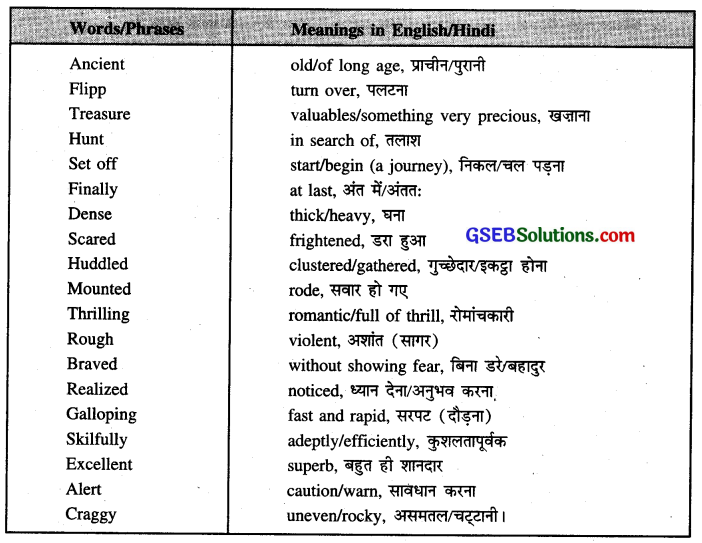
![]()
![]()


